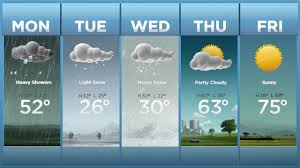forecast
英 [ˈfɔː.kɑːst]
美 [ˈfɔːr.kæst]
- vt. 预报,预测;预示
- n. 预测,预报;预想
- vi. 进行预报,作预测
使用频率:

记忆方法
将“forecast”拆解为“fore”(未来)和“cast”(扔、掷),形象地想象未来像被掷出去的物品一样,可以被预测或投射。这种方法有助于记忆单词的含义,即“预测”。
以上内容由AI生成, 仅供参考和借鉴
中文词源
forecast 预测
fore-,在前。cast, 投射。用于天气预报。
英语词源
- forecast (v.)
- late 14c., "to scheme," from fore- "before" + casten in the sense of "contrive, plan, prepare" (late 14c.; see cast (v.)). Meaning "predict events" first attested late 15c. (cast (v.) "to perceive, notice" is from late 14c.). Related: Forecasting.
Whether we are to say forecast or forecasted in the past tense & participle depends on whether we regard the verb or the noun as the original from which the other is formed; ... The verb is in fact recorded 150 years earlier than the noun, & we may therefore thankfully rid ourselves of the ugly forecasted; it may be hoped that we should do so even if history were against us, but this time it is kind. [Fowler, 1926]
- forecast (n.)
- early 15c., "forethought, prudence," probably from forecast (v.). Meaning "conjectured estimate of a future course" is from 1670s. A Middle English word for weather forecasting was aeromancy.
权威例句
- 1. The weather forecast is for showers and overcast skies.
- 天气预报上说多云并伴有阵雨。
- 2. Our forecast for 1990 was on the right lines.
- 我们有关1990年的预测大体是正确的。
- 3. Many traders forecast a continuation of the market's recent bearish trend.
- 很多交易商都预测最近市场的下跌趋势还将延续。
- 4. There was considerable scepticism about the Chancellor's forecast of a booming economy.
- 有相当多的人对财政大臣作出的经济会迅猛发展的预测表示怀疑。
- 5. The study also forecast an explosion in the diet soft-drink market.
- 该研究还预测低糖软饮料市场将迅猛增长。